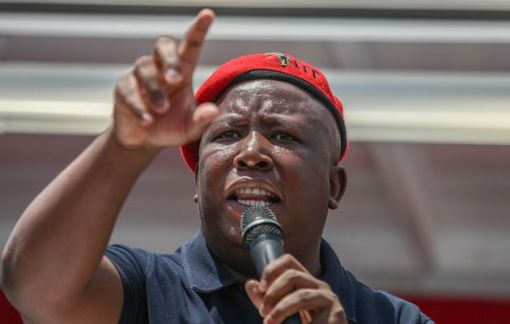
Julius Malema appeared in court last week and with him, a Louis Vuitton belt.
An EWN reporter made sure we knew all about the belt, and Times Live later claimed that thanks to Malema, it now knew the price of such a belt – but Malema is not the first person to accessorise with the luxury product.
Next we’ll be claiming to have learnt Pierre Cardin from the Democratic Republic of Congo’s La Sapeur – the society of elegantly dressed working class men who only wear designer labels.
We are well informed about Malema’s expensive tastes; from Breitling watches to that house he was building in Sandton (which was attached by the SA Revenue Service and sold).
Likewise, we were endlessly reminded of Kenny Kunene’s excessive wealth and spending habits before and after he went into politics.
The subtext here is that two men who claimed to be “revolutionaries” live like the rich, and not like “the people”.
The conversation about the moral obligations that come with black wealth (real or imagined) is a column all on its own. But, essentially, if you are going to eat sushi and be black, you best be building houses for the poor too.
While we have convinced ourselves that we are intolerant of the hypocrisy of revolutionaries who behave like capitalists, the truth is, we are not against all conspicuous consumption.
We don’t like it only sometimes because depending on who you are, we’ll send Top Billing to cover it, and call it the “good life”.
There are “good” and “bad” capitalists. Mark Shuttleworth is the newly crowned king of the former.
South Africa is truly a country of burning ironies.
Except it is nearly impossible to be a good capitalist in the current system that was a tinkering, rather than an undoing, of the old economic system.
South Africa is characterised by glaring consumption by a minority. Good, pro-rainbow nation individuals (black and white alike) enjoy the fruits of the prevailing wage structure, which writer Osiame Molefe rightly points out is “based on the historical exploitation of black workers”.
All this with no sense of irony or self-awareness when we point out Malema’s belt. It’s even worse when the self-proclaimed good and pro-poor do so while we benefit from the oppressive systems that deliver our iPhones and Nikes.
The good ones are too complicit in the way these systems function, but it’s easier to make it about Julius’ belt while we remain couched in the privileges we got from the system we expect others to reject.
Article by: Gugulethu Mhlungu
Article Source: City Press
